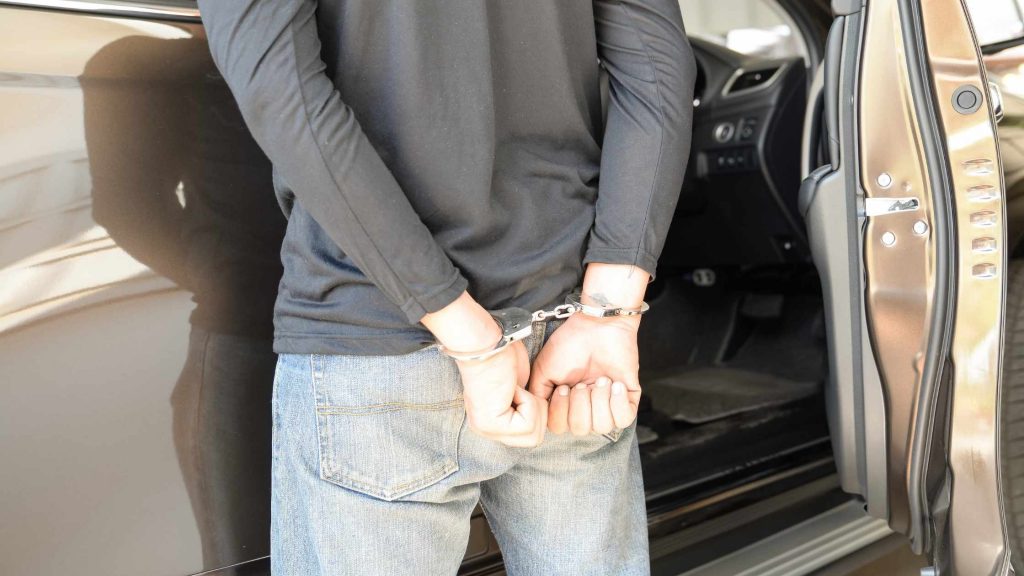The idea of “bail” is part and parcel of criminal law in Queensland.
Understanding the circumstances in which bail can, will, or won’t likely be granted is going to be critical if you are ever taken into custody on suspicion of an offence that requires a later Court appearance.
In this article, we’re going to run through the fundamentals of bail in Queensland, including:
- What bail is;
- Applying for bail;
- The concept of “surety”;
- Common bail conditions; and
- What happens if you don’t turn up after being granted bail.
We’re not going to look at what the Court considers as part of a bail application here – that will be an article for another day.
What is Bail?
Bail is the word we use when someone has been charged with an offence but is allowed to remain in the community (usually with conditions) on their written promise to come to Court for that hearing.
Without bail, many people who have been charged would remain imprisoned until their hearing.
Not only would that system be potentially (and unnecessarily) damaging for many individuals and their families, but it could also lead to massive overcrowding in the system.
As a result, provided the circumstances justify it, making a bail application tends to be an early step in many criminal law matters.
When Do You Apply for Bail?
There are two normal times you’re going to be looking at bail:
- Immediately after arrest – if you are charged, the police have to consider whether or not they should grant you bail. This is sometimes called “Police bail” or “Watchhouse bail”. If you cannot be put before a Court within 24 hours, the police either have to give you a Notice to Appear or grant you bail on certain conditions.
- At Court – if you remain in custody after arrest, the police must bring you before a Court as soon as possible. Once there, you can apply to the Court for bail. Hopefully by this time you have retained a criminal lawyer who can make the necessary submissions on your behalf.
In either case, if you are granted bail, you will be able to leave custody on the conditions set.
The Concept of a Surety
As you will see below, some common bail conditions include putting money at risk should you breach your bail and not appear at the required Court hearing later.
Sometimes you might simply not have the ability to put up money yourself.
If that happens, you of course have the option of staying in custody, though for obvious reasons most people do not want to do that.
Otherwise, the Court will consider whether it is prepared to have another person (over the age of 18) stand in for you to put their own money on the line. That is, if you breach the conditions of your bail then that person will forfeit their own funds.
That person is called a “surety”.
If a surety is prepared to do that in your case, the Court will consider whether the nominated surety is suitable, and whether the amount they are proposing to offer is sufficient in the situation.
A surety can significantly assist your bail application and can include real estate.
Common Bail Conditions
The typical bail condition is that you will deposit or show that there is a sum of money, that may be used as security for you..
If you do not turn up – your money will be forfeited or called upon.
There are, however, other special conditions that can be placed on bail. While the scope of options is fairly wide, that might include:
- Staying away from certain places;
- Participating in drug tests;
- No alcohol;
- Surrendering your passport;
- Having a curfew;
- wearing an ankle bracelet and/or
- Regularly reporting to a police station.
What Happens if you Don’t Turn Up?
If you fail to turn up at the Court or otherwise breach your bail conditions, then several fairly serious potential consequences could come up.
First, the money you paid or secured to be paid, if any, will likely be forfeited (or the money your surety paid for you will be forfeited).
If your breach is a failure to attend Court, then the Court may issue a warrant for your arrested.
Breaching bail conditions is also an offence and can attract a significant fine of 40 penalty units ($5,750 in Queensland as of October 2022) or up to 2 years imprisonment.
Importantly, breaching your bail conditions once can also negatively impact any future bail applications.
That said, you will be allowed to try and explain to the Court why you did not appear or breached the conditions. If your explanation is acceptable (for example, you were in a car accident), the Court might not impose significant consequences.
Getting Bail
You should not assume that getting bail is a simple process, especially if you have been charged with a serious offence. A failed application will generally cause delays and further application to a higher court which add significant costs.
If you are going before a Court to try and seek bail, it’s best to get criminal lawyers to help make submissions on your behalf and to address any concerns that the Police prosecutors might raise. That can maximise your prospects of securing bail and hopefully limit the number of conditions that might be placed on your release from custody.
Having a bail application done right the first time is very important.
Give us a call if you need help.

